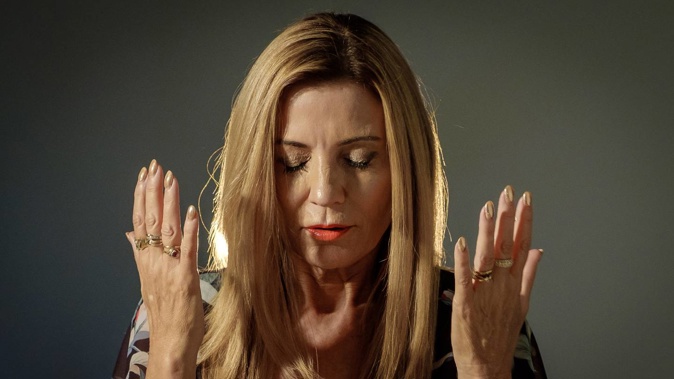

A celebrity psychic’s advertisement for a remote healing service has irked a group set up to fight pseudoscience in medicine.
Auckland-based Kerry-Marie Callander, described on her website as an internationally trained psychic medium, speaker, published author and TV personality and one of New Zealand’s most sought-after psychic mediums, was a part of the team of psychics on TVNZ’s Sensing Murder.
More recently, a remote healing service offered on her website has caught the attention of the Society for Science-Based Healthcare - a New Zealand-based advocacy group.
Callander was promoting remote healing as being “very effective on an emotional, physical, mental or spiritual level” and potentially helpful for people trying to recover from the Covid-19 pandemic while in isolation or lockdown.
The society’s complaint to the Advertising Standards Authority (ASA) prompted Callander to remove the advertisement before it got to the authority’s complaints board.
/cloudfront-ap-southeast-2.images.arcpublishing.com/nzme/XX2ZNU2IF5A2ZLELEYSCJTHWZM.jpg)
Daniel Ryan objected to an advertisement on Callender's website.
It complained the ad likely breached the Therapeutic and Health Advertising Code, and contained health claims that had not been substantiated.
In its recently released decision, the ASA said that given Callander had amended the website advertisement, it would serve no further purpose to place the matter before the Complaints Board.
Callander told NZME in an email the wording in the advertisement was removed to avoid confusion.
“It was sorted a while ago. They were happy with the outcome and commented that I’m self-regulating.”
She noted the complaint was “connected to the sceptic society” but declined to comment further, including on what was involved in remote healing, or whether she thought the complaint was fair.
The Society for Science-Based Healthcare was co-founded by Wellington software developer Daniel Ryan, who is a member of the NZ Skeptics Society.
He also runs a pub-based health activism group, and is a co-founder and president of Making Sense of Fluoride, set up to debunk “anti-fluoride woof***ery and pseudoscience”.
Ryan told NZME the 280-member society was made up of medical experts, scientists and members of the public “worried about claims being advertised”.
He said the ASA was the group’s starting point for getting traction with its activism.
“Most companies listen to the ASA.”
Ryan said his interest began eight to nine years ago after he was shown what he said was misinformation being advertised, and wanted to do his part to help “clean it up”.
“It’s been a never-ending, there’s just so much bulls**t out there.”
He said he did not have a grudge against psychics - he found the subject interesting, and the group was not trying to stop the public from getting these services.
“I support freedom of choice. I’m just against made-up claims.”
Ryan said the psychic’s claim in the advertisement that remote healing might help people recover from problems brought on by the pandemic was what attracted his attention.
He said neither himself nor the group targeted things “willy-nilly” - just the claims they considered didn’t make sense, or had no scientific evidence to back them.
He said in most cases for a complaint to succeed, all he had to do was ask for proof.
“Usually with an ASA complaint I just say: ‘What’s the evidence?’ and it’s up to the business to defend.
“If they believe they have that evidence to back the claims being made then they would show it to the ASA and if the authority then accepted it, that’s that.”
Ryan, who said his mission was to “try and improve the world”, worked on debunking claims voluntarily in his spare time.
Tracy Neal is a Nelson-based Open Justice reporter at NZME. She was previously RNZ’s regional reporter in Nelson-Marlborough and has covered general news, including court and local government for the Nelson Mail.

Take your Radio, Podcasts and Music with you








